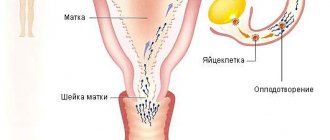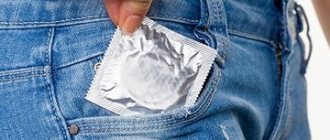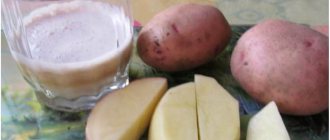Causes of thrush
After fertilization of the egg, progesterone increases in the blood and the vaginal microflora is suppressed. Deterioration of protective functions can be caused by various causes of thrush.
- One of the main reasons is the use of antibiotics to treat various viral diseases. In addition to viruses and pathogenic bacteria, antibiotics also kill beneficial bacteria, and fungus begins to develop in their place.
- Chronic diseases indicate weakening health, against which thrush may appear.
- Taking contraceptives disrupts hormonal levels, which contributes to the development of Candida fungus.
- After fertilization of the egg, the composition of hormones begins to change and a restructuring of the entire body occurs, which can cause thrush.
- Thrush can also be caused by existing infectious diseases of the genitourinary system.
- Various allergic reactions indicate a weakening of the body, which can encourage the development of fungus due to changes in hormonal levels that occur after ovulation.
- Problems in the functioning of the endocrine system and the presence of diseases such as diabetes mellitus affect the general condition of the body, deteriorating its protective functions, as a result of which the risk of thrush increases sharply.
Consequently, the onset of pregnancy is a serious restructuring of the entire female body and can lead to the development of thrush.
Treatment
A timely visit to a medical facility will help correct the situation as soon as possible. All medications should be prescribed exclusively by a doctor based on test results. When it comes to the acute form, it is customary to use ointments, creams, vaginal suppositories and tablets in therapy.
When relapses are recorded in the middle of the cycle, it is recommended to take medications orally. At the same time, the doctor may prescribe antifungal, antibacterial, antiseptic and sedative drugs.
As for suppositories, they have an excellent effect, acting on the source of the disease. These products are used in a horizontal position. The woman will begin to feel relief a few days after starting therapy.
Signs of the onset of the disease
The appearance of thrush is characterized by the following signs:
- normal daily discharge increases in volume and lasts for a long time, it has a viscous consistency, a more saturated color and acquires a persistent unpleasant odor;
- the appearance of itching at the end of menstruation or after sexual intercourse;
- a feeling of pain in the lower abdomen, accompanied by cramps and difficulty urinating. A slight increase in temperature is possible;
- a white coating collects on the mucous membranes of the genital organs, which after a while becomes a crust, and later ulcers appear;
- A rare manifestation may be diarrhea accompanied by nausea, which in turn leads to irritation of the anus.
Instead of ovulation - thrush?
If thrush appears in the middle of your cycle or somewhere during your ovulation, make sure that this is it.
Women often confuse thrush with normal, abundant cervical mucus during the ovulatory period (with a 28-day cycle, this is approximately 12-14 DC). Remember, thrush does not go away on its own in 1 day.
Here are four options for deciphering “suspicious” discharge:
- Fetal cervical fluid. During the release of a mature egg, the amount of discharge increases sharply. They are transparent, slimy and viscous like raw protein (odorless, do not cause itching or discomfort). During this period, a woman feels strong humidity - this is a normal process that does not require treatment.
- Further, the next day after open contact, remnants of ejaculate may still come out. It is cloudy-white, watery, without a pungent odor and does not cause burning or itching (this is natural and physiological).
- Candidiasis , in turn, has
- discomfort, itching or burning in the perineal area (scratching appears over time). In the evening or after walking, the manifestations intensify;
- hyperemia (swelling, redness) of tissues;
- There may be a cheesy discharge with an unpleasant odor.
If you have at least two of the listed symptoms, most likely you are not mistaken and you need to go to the doctor. The diagnosis is made based on a smear and speculum examination.
- Bacterial infection or STD (more on that below).
Remember a simple rule for assessing your discharge: normally there should be no itching, redness, burning or strong odor. This requires the help of a gynecologist.
Why did thrush appear after ovulation? Is this a sign of pregnancy or not?
It is worth noting that if thrush visits a woman more than once, then we can talk about a chronic disease. This condition is possible if you self-medicate without consulting a doctor. What occurs is not a cure, but a healing, during which the disease subsides for a while, and when favorable conditions appear, it begins to become active again. It is important to remember that unsystematic treatment of thrush without taking into account individual characteristics can lead to infertility.
If characteristic symptoms appear after ovulation, it is necessary to conduct an examination, since the first signs of thrush are very similar to the onset of the development of diseases such as genital herpes, chlamydia, trichomoniasis, and gonorrhea. In some cases, this condition can cause hormonal imbalance. Therefore, only a doctor can make an accurate diagnosis based on examination data.
It is important to know that the cause of thrush after ovulation is the production of progesterone, which changes the hormonal state, against which the disease develops.
Can thrush interfere with ovulation?
The disease does not directly affect the maturation and release of the egg. The time of ovulation will be the same as in a normal, healthy cycle.
It is possible to become pregnant during thrush, but in this case the choice of drugs allowed in the first trimester, as well as their effectiveness, is much lower.
If you have thrush in the first phase of your cycle, it is better to wait until conception until the next cycle and be treated with the same effective, proven and inexpensive Fluconazole.
Important(!) For pregnant women and those planning to take medications based on Fluconazole (for example, Diflucan) are contraindicated, since it has been proven that taking large doses of the drug during pregnancy leads to various pathologies of the fetus. Systemic antifungal drugs (tablets) are prohibited for expectant mothers; only local ones, approved in the first trimester, are used!
The effect of progesterone on thrush
- Progesterone suppresses the work of lymphocytes, which are responsible for the healthy condition of the vaginal mucosa and genital organs. The immune system weakens and the body lacks the means to counteract the Candida fungus, resulting in thrush.
- The dominance of progesterone allows the fungus to penetrate the mucosa. This process is accompanied by an increase in blood sugar levels, and as you know, an environment with high glucose is very favorable for thrush.
- The increased development of progesterone provokes the influence of glycogen, which is responsible for the vaginal microflora. An increase in glycogen contributes to the growth of yeast infection, against which thrush develops.
Many women determine the beginning of their pregnancy by thrush starting on the third or fourth day after ovulation. This statement is quite controversial, since after fertilization of the egg, a restructuring of the entire body begins - changes in hormonal levels, an increase in the work of progesterone and glycogen, and, as a result, the appearance of thrush. But at the same time, the manifestation of the disease cannot be considered a harbinger of the onset of pregnancy.
Chronic thrush and planning
Women who want to become pregnant with chronic thrush should do the following::
- before starting planning, treat aggravated candidiasis. To do this, you need to undergo a powerful course of antifungal drugs (systemic + local) with supportive therapy (prescribed by a doctor individually, depending on the situation);
- if there is no exacerbation, then the doctor prescribes a milder preventive course of antimycotics (individually depending on the situation);
- then, observing all preventive measures (nutrition, hygiene, reducing stress and certain medications), you begin planning with the next menstrual cycle.
Advice(!) If chronic thrush worsens during certain seasons/months, postpone conceiving a child until a “healthier” time of year. After completing the course, you can have open sexual intercourse without protection in about a month (this time is enough for all the medicinal substances to leave the body).
Products that accompany the development of thrush
Women with chronic thrush, of course, already know about them. For those planning who are encountering candidiasis for the first time, they should first of all limit the consumption of foods that enhance the growth of fungi. Among them:
- sweets;
- flour products;
- starchy foods (potatoes, rice, corn, bananas);
- sweet fruits (grapes, fruit and berry juices);
- spicy, salty, pickled, smoked dishes and generally processed foods (the best alternative is pickled vegetables and fruits);
- tuna and mackerel (easily accumulate heavy metals);
- caffeine (no more than 1 cup in the morning);
- any alcohol.
So, if you are openly sexually active, without protection, and thrush begins, take a test or get tested. If the diagnosis is confirmed, use local antifungal agents approved in the first trimester.
If there has not been ovulation in this cycle yet, you can use any medications, including systemic ones (tablets). You can continue planning from the next cycle.
Does the appearance of thrush mean that you are 100% pregnant? Of course not, although pregnant women have a much higher incidence rate than non-pregnant women.
Make the right decision and be healthy. Good luck with your planning!
An unpleasant disease, popularly called thrush, can start in a woman at any time, on any day of the cycle. The problem is very widespread. But in some women, symptoms of candidiasis appear with a certain frequency, for example, in the second half of the cycle, after ovulation. This article will tell you what this might mean.
Warning
Prevention of thrush is based on a healthy lifestyle. First of all, this means playing sports with feasible physical activity, which will not allow the body to stagnate.
Eating a balanced diet will also help prevent thrush. On the one hand, exhausting diets, and on the other, excessive nutrition negatively affect hormonal levels,3 which contributes to the development of Candida fungus.
Hormonal contraceptive pills or other medications can also have a negative effect on a woman’s hormonal state. Therefore, any hormonal medications should be taken only as prescribed by a doctor and if absolutely necessary.
Bad habits - smoking and drinking alcoholic beverages contribute to the development of fungal infections.
Prevention of the disease requires for personal hygiene procedures to use not simple cosmetics, but those specially designed for intimate hygiene.
And of course, underwear should consist of natural fibers that do not cause skin irritation and do not contribute to the growth of fungus.
Prevention
If you do not want thrush to start during or after ovulation, it is important to follow these rules:
- Maintain personal hygiene.
- When planning a pregnancy, you need to get tested for the presence of fungus. If detected, you need to be treated immediately.
- Do not take antibacterial drugs without permission.
- Eat right and regularly.
- Lead a healthy lifestyle.
Consulting a doctor before starting therapy is important, since other diseases, for example, chlamydia or gonorrhea, have similar symptoms.
These tips will help prevent the development of the disease. But it is important to adhere to these rules constantly, since thrush can return at any time. Doctors say that just the maturation of fungal spores takes 14 days. Therefore, treatment will take a lot of time. And preventive measures must be observed constantly.








